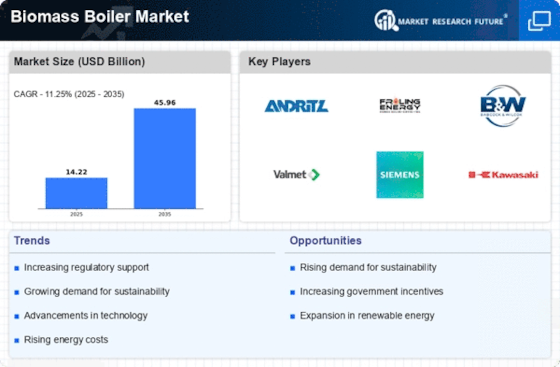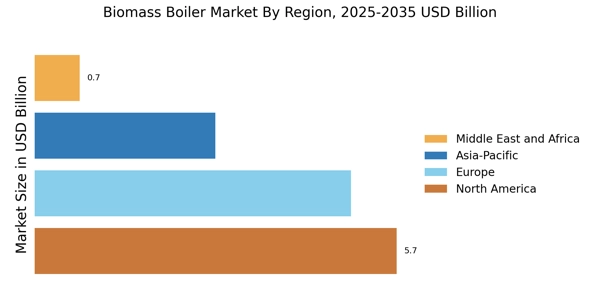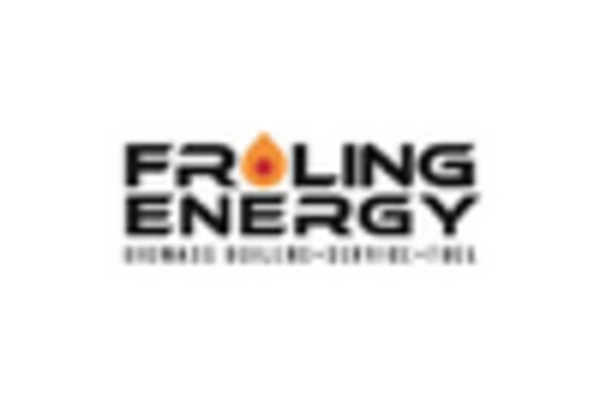Rising Energy Demand
The increasing The Biomass Boiler Industry. As populations grow and industrial activities expand, the need for sustainable energy sources intensifies. Biomass boilers, which utilize organic materials for energy production, present a viable alternative to fossil fuels. According to recent data, the energy consumption is projected to rise by approximately 30% by 2040, necessitating innovative solutions. This trend indicates a growing market for biomass boilers, as they can provide renewable energy while reducing greenhouse gas emissions. The Biomass Boiler Market is thus positioned to benefit from this escalating demand, as stakeholders seek to diversify their energy portfolios and enhance sustainability efforts.
Technological Innovations
Technological innovations are transforming the Biomass Boiler Market, enhancing efficiency and performance. Advances in combustion technology, automation, and control systems have led to more efficient biomass boilers that can operate with a variety of feedstocks. These innovations not only improve energy output but also reduce operational costs, making biomass a more competitive energy source. The market is witnessing the introduction of smart biomass boilers that integrate with renewable energy systems, further optimizing energy use. As these technologies continue to evolve, the Biomass Boiler Market is expected to attract more investments and interest from various sectors, including residential, commercial, and industrial applications.
Government Incentives and Policies
Government incentives and supportive policies play a crucial role in shaping the Biomass Boiler Market. Many countries have implemented regulations that promote renewable energy sources, including biomass. These policies often include tax credits, grants, and subsidies aimed at encouraging the adoption of biomass technologies. For instance, certain regions have set ambitious targets for renewable energy usage, which could lead to a substantial increase in biomass boiler installations. The Biomass Boiler Market is likely to experience growth as these incentives make biomass solutions more financially attractive for businesses and consumers alike. This regulatory environment fosters innovation and investment in biomass technologies, further propelling market expansion.
Environmental Sustainability Concerns
Growing concerns regarding environmental sustainability are significantly influencing the Biomass Boiler Market. As climate change becomes an increasingly pressing issue, there is a collective push towards reducing carbon footprints and transitioning to cleaner energy sources. Biomass boilers are recognized for their potential to utilize waste materials, thereby contributing to waste management and reducing landfill use. The market data suggests that the biomass sector could potentially reduce carbon emissions by up to 80% compared to traditional fossil fuels. This environmental advantage positions the Biomass Boiler Market favorably as consumers and businesses alike prioritize sustainable practices in their energy consumption.
Diverse Applications Across Industries
The versatility of biomass boilers across various industries serves as a significant driver for the Biomass Boiler Market. These systems are employed in sectors such as agriculture, food processing, and manufacturing, where they provide a reliable source of heat and power. The ability to utilize different types of biomass feedstock, including agricultural residues and wood chips, enhances their appeal. Market analysis indicates that the industrial sector is increasingly adopting biomass boilers to meet energy needs while adhering to sustainability goals. This trend suggests a robust growth trajectory for the Biomass Boiler Market, as more industries recognize the benefits of integrating biomass solutions into their energy strategies.

















